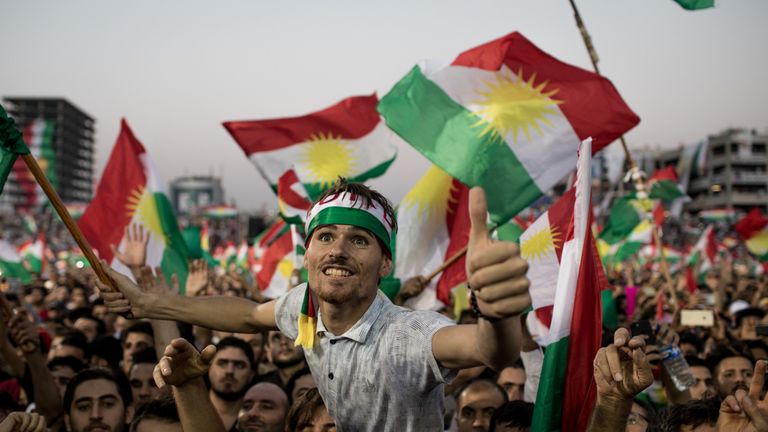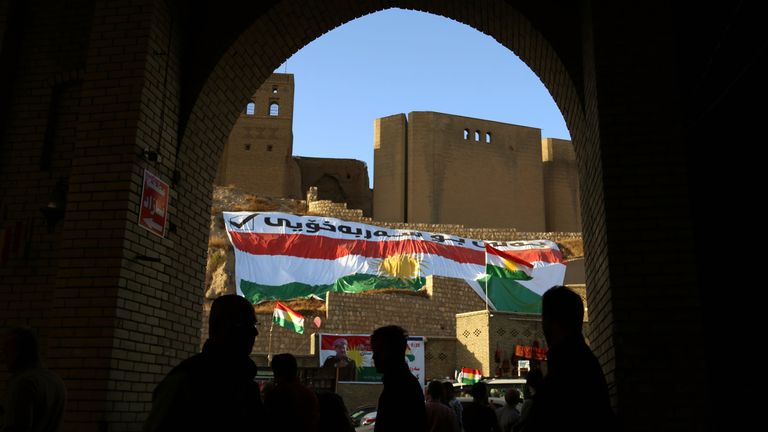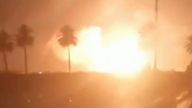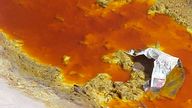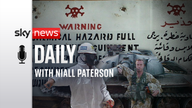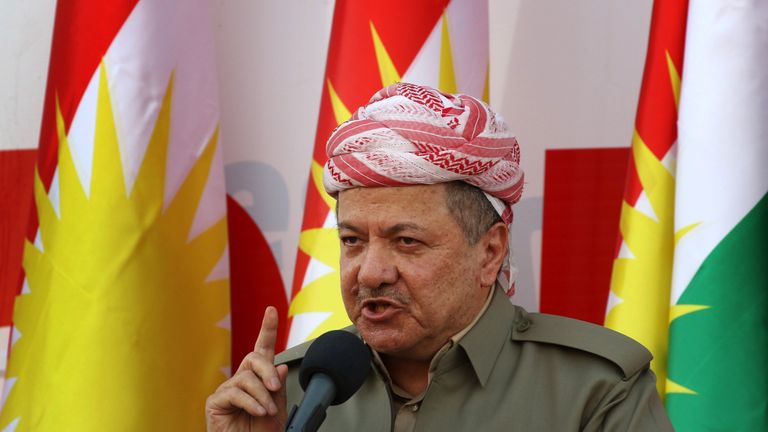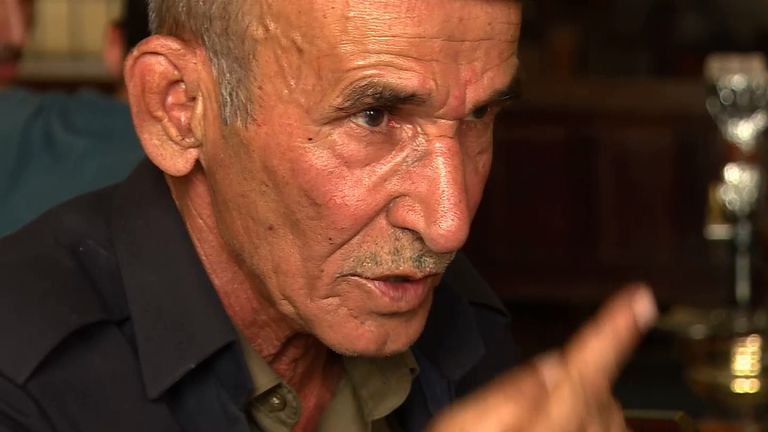Kurdish independence referendum in Iraq fuels violence fears
The US and Britain are both opposed to the "destabilising" vote, arguing it distracts from the fight against Islamic State,
Monday 25 September 2017 06:30, UK
A controversial independence referendum is being held in the Kurdish region of northern Iraq, defying objections from international allies and raising fears of violence.
The semi-autonomous region is expected to overwhelmingly vote 'Yes' in Monday's poll, which could begin a long process of separation from the rest of the country.
The US and the UK have both publicly opposed the referendum, saying it will destabilise the fragile security situation in Iraq and distract from the ongoing fight against Islamic State.
Neighbours Turkey and Iran are against the vote because of concerns Kurds within their own borders will seek their own version of self-rule.
An independent Kurdistan would also stand in the way of Tehran's ambitions to create a corridor of influence sweeping down to Lebanon on the Mediterranean coast.
There is a further internal dispute over the fate of Kirkuk, an oil rich region on the southern Kurdish border.
Both Baghdad and the Kurdish capital Erbil claim ownership of the city.
The city is a simmering pot of Kurds, Turkmen, Arabs, Christians and other minority groups.
They are split in their allegiances and there is a concern that the referendum will spark violence here. If it does, Baghdad has threatened to send the Iraqi Army in to regain control.
London and Washington tried, but failed, to negotiate a deal behind closed doors that would benefit both Erbil and Baghdad, but the de facto Kurdish President Masoud Barzani has dismissed their efforts, telling the Guardian newspaper in a recent interview that the ballot is not "a pressure card".
"From World War One until now, we are not a part of Iraq," he told the newspaper.
"It's a theocratic, sectarian state. We have our geography, land and culture. We have our own language. We refuse to be subordinates."
The Kurds do not trust the Baghdad government after a series of broken promises following joint negotiations on the Iraqi Constitution in 2005.
The US, which mediated and aided the negotiations, assured the Kurds that the obligations would be met, but a number of agreements were never implemented and Kurdish trust has vanished.
Furthermore, Iraqi Kurds have a long history of repression emanating directly from Iraq.
Following the fall of Mosul, the region believes it is now time to start what they believe is a long-overdue split from Iraq.
Sky News attended a massive independence rally in the northern mountain town of Soran.
Tens of thousands came to the event at the local sports stadium to hear President Barzani speak.
"Our deal with Baghdad is not about sending our Ministers there or the budget. That is finished. It was a mistake to go back them in 2003 but we trusted them and they didn't respect us," he told the crowd, dressed in his trademark brown Qati Kurdi suit.
Moti Abdulabar is an elderly Peshmerga, called back to the military because of the fight against IS.
He, like anyone of a certain age, remembers bitterly life in Saddam Hussein's Iraq when the Kurds were gassed and ethnically cleansed.
"When I was a child Saddam killed us and made us leave our homes," he told me in a Erbil tea shop.
"I've not seen any happiness come from Baghdad. I want to ask other countries to let us have our referendum.
"We are a democratic country, please find us a solution so we are not part of Iraq."
Electronic voting has already started for the Kurdish diaspora - results aren't expected for around 72 hours.

